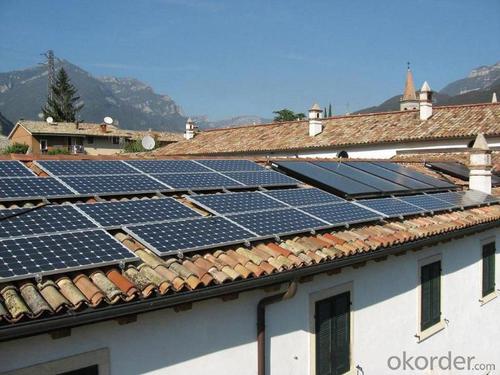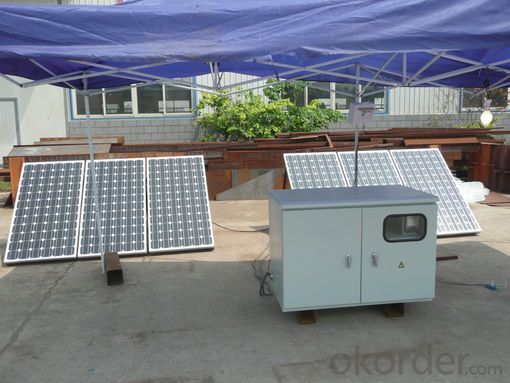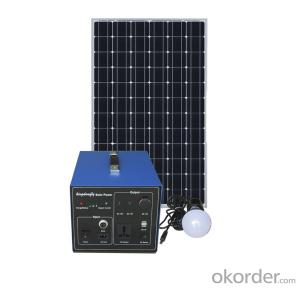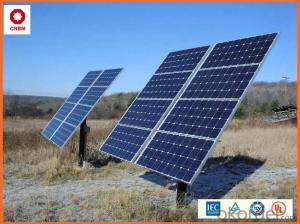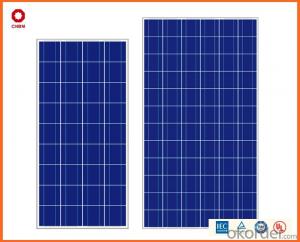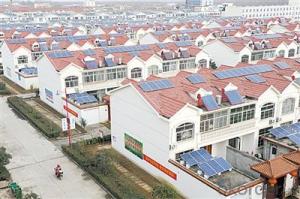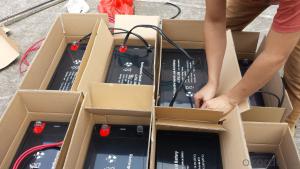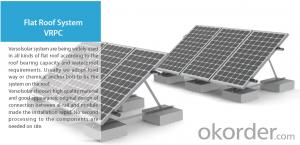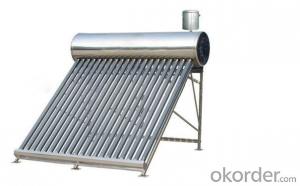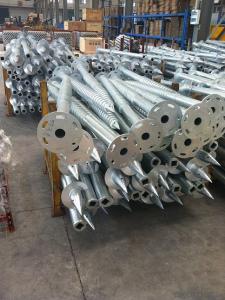PV Solar Energy Systems - Roof Solar Power System Hot Sale 2024 New
- Loading Port:
- Shanghai
- Payment Terms:
- TT or LC
- Min Order Qty:
- 500 watt
- Supply Capability:
- 2000000 watt/month
OKorder Service Pledge
OKorder Financial Service
You Might Also Like
Quick Details
| Quick Details | |||||
| Specification: | Normal | Application: | Home | Output Voltage (V): | AC110V/220V |
| Load Power (W): | 3KW | Solar Power (W): | 3KW | Work Time (h): | 48 |
| Cables: | 50m | Solar Panel Rack: | Optional | Battery Capacity: | 12V/200AH*8pcs |
| Controller Voltage: | 48V | Inverter Output Voltage: | AC220V/110V | Efficiency: | 90% |
| Inverter: | DC48V | Rated Output Capacity: | 3000W | Solar Panel Power: | 250w*12pcs |
| Solar Panel Type: | Crystalline Silicon PV Module | ||||
Packaging & Delivery
| Packaging & Delivery | |
| Packaging Detail: | using carton or wooden box as per customer's requirement. |
| Delivery Detail: | within 10~30 days for shipment depending on order quantity |
Excellent battery backup 300W to 10KW off grid solar system with grid power switch
Anern Advantage:
1) Over 10 year experience in clean energy line, business covering solar street light, solar garden light, off grid
solar system and on grid solar power system, etc;
2) Exporting for worldwide, with satisfied clients more than 50 countries;
3) Competitive price, excellent service, integrated certificate system;
We supply CE, RoHS certificates if you need
Welcome to visit our factory at any time.
Solar system advantages:
1. CE, ROHS approved.
2. High conversion efficiency, high-transmission rate.
3. Energy saving, environmental-friendly.
4. Advanced technology, strict quality control system.
5. Easy installation, safe operation, free maintenance.
6. Low MOQ, fast delivery time, long service life
Specifications:
| Ref No. | OFF-SGHP-3KW | |
| System Basic Information | Solar Panel Rated Output Power | 3KW |
| Suitable for Max Daily Power Consumption | 10KWH | |
| Rated Output AC Capacity | 3KW | |
| Solar panel | ||
| Type | Crystalline Silicon PV Module, A-class | 12pcs |
| Max Power | 250W | |
| Vmp | 30.5V | |
| Size | 1655*992*45mm | |
| Weight | 22.5kg/pc | |
| 25 years power output guarantee (Note: 2pcs panels connect in series) | ||
| Controller | ||
| Voltage | 48V | 1pc |
| Current | 60A | |
| Warranty | 1 year | |
| PWM high-efficiency charging controller, LED display, intelligent control; Temperature compensation, various protections. | ||
| Circuit Breaker | Used for protection of controller, installed between PV array combiner and controller | 1pc |
| Inverter | ||
| Input Voltage | DC48V | 1set |
| Output Voltage | AC220V/110V 1-phase | |
| Frequency | 50/60Hz | |
| Efficiency | 90% | |
| Note: This inverter provides grid power switch and battery charging functions. | ||
| Battery | ||
| Capacities | 12V/200AH per piece | 8pcs |
| Service life | 5 to 6 years | |
| Warranty | 3 years | |
| Solar panel rack | Flat-roof type mounting rack, steel material, anti-rust treatment | 1 set |
| (Other types of racks can be customized as per client's requirement) | ||
| Cable | 50m | |
| Connectors | 3-terminal connectors, used for panels connection in parallel | 6 set |
Product features:
1. Off grid solar power system is mainly used for application with relatively-small power consumption, and the areas have no grid network coverage, or grid power is unstable or outage condition.
2. It’s composed of solar panels, hybrid solar inverter, battery bank, solar panel mounting racks, and other accessories required fora complete home solar power system.
3. The battery bank gives a stable power output to the solar inverter which converts DC to AC to power loads, and provides power backup in rainy or cloudy days.
4. The solar panels generate electricity at daytime and charge the battery bank .
5. The off grid home solar power system provides grid power bypass in case of battery power shortage when sunshine is not enough.
6. All the off grid home solar power system configurations are worked out by scientific calculation and design.
FAQ
We have organized several common questions for our clients,may help you sincerely:
①what price for each watt?
it depends on the quantity, delivery date and payment terms,
②what is your size for each module? can you tell me the parameter of your module?
we have different series of panels in different output, both c-si and a-si. please take the specification sheet for your reference.
③Can you provide the peripheral products of the solar panels, such as the battery, controller, and inverter? If so, can you tell me how do they match each other?
Yes, we can, we have two companies for solar region, one is CNBM International, the other is CNBM engineering Co.
We can provide you not only the solar module but also Solar Cells, the off grid solar system, we can also provide you service with on grid plant.
④What is your warranty system?
Our product performance guarantees for 25 years
• 12 years guarantee for workmanship
• Timeliness of delivery
• Quality Products certified (TÜV, UL, CE, ISO)
⑤How do you pack your products?
We have rich experience on how to pack the panels to make sure the safety on shipment when it arrives at the destination.
⑥ Can you do OEM for us?
Yes, we can.
⑦How long can we receive the product after purchase?
In the purchase of product within three working days, We will arrange the factory delivery as soon as possible. The pecific time of receiving is related to the state and position of customers. Commonly 7 to 10 working days can be served.
- Q: Can solar energy systems be used for water heating in swimming pools or hot tubs?
- Yes, solar energy systems can be used for water heating in swimming pools or hot tubs. Solar thermal systems can be installed to harness the sun's energy and heat water for pools or hot tubs, providing a sustainable and cost-effective alternative to traditional heating methods.
- Q: Is it possible to store excess electricity generated by a solar energy system?
- Yes, it is possible to store excess electricity generated by a solar energy system. One common method of storage is through the use of batteries. Solar energy systems can be equipped with battery banks that store the excess electricity generated during the day for use during the night or when there is low sunlight. These batteries can be charged and discharged as needed, providing a reliable and continuous power supply even when the sun is not shining. Another method of storing excess electricity is through grid-tied systems. In this setup, when the solar energy system generates more electricity than is being used, the excess power is fed back into the electrical grid. This excess power is credited to the homeowner's account, and they can use these credits to draw electricity from the grid during times when their solar panels are not producing enough power, such as at night or during cloudy days. Both battery storage systems and grid-tied systems provide a way to store and utilize excess electricity generated by a solar energy system, ensuring that no energy goes to waste and enabling homeowners to have a reliable and uninterrupted power supply.
- Q: How does the installation of solar panels affect the building's resale value?
- A building's resale value can be positively affected by the installation of solar panels. Solar panels are regarded as a valuable addition to a property due to the multiple benefits they offer. To begin with, potential buyers find solar panels highly appealing as they can significantly reduce or even eliminate electricity bills. This feature is attractive and can make a property more enticing, ultimately increasing its market value. Furthermore, the current concerns surrounding climate change and the growing interest in sustainable living make solar panels a desirable feature that aligns with eco-conscious values. Additionally, solar panels have the potential to generate income through net metering programs. In certain regions, surplus electricity generated by solar panels can be sold back to the grid, creating an additional source of revenue. This financial advantage enhances the value of a property and attracts buyers who are interested in investing in renewable energy. Moreover, the installation of solar panels contributes to the overall energy efficiency of a building. This leads to improved energy performance ratings and certifications, such as LEED or Energy Star, further boosting the resale value of the property. Nevertheless, it is crucial to note that the impact on resale value can vary depending on factors such as the property's location, local housing market trends, and the size and quality of the solar panel system. It is advisable to seek guidance from real estate professionals or appraisers experienced in evaluating the impact of solar panels on property values in a specific area.
- Q: Can solar energy systems be used in powering hospitals or healthcare facilities?
- Certainly, solar energy systems can be utilized to power hospitals and healthcare facilities. Actually, numerous healthcare institutions worldwide are already employing solar power as a dependable and sustainable source of electricity. Solar energy systems consist of photovoltaic (PV) panels that convert sunlight into electricity, which can then be used to operate various equipment and appliances within the facility. There are several advantages associated with using solar energy in healthcare facilities. Firstly, it aids in reducing operational costs by providing a long-term and sustainable electricity source. Hospitals and healthcare facilities require a substantial amount of energy to run medical equipment, lighting, heating, cooling, and other vital systems. By installing solar panels, these institutions can significantly decrease their electricity expenses and allocate their resources towards patient care. Secondly, solar energy systems contribute to environmental sustainability. Hospitals are renowned for their high energy consumption, and traditional energy sources often result in increased carbon emissions and pollution. By transitioning to solar power, healthcare facilities can diminish their carbon footprint and promote a greener and healthier environment. This aligns with the healthcare industry's dedication to advancing public health and well-being. Furthermore, solar energy systems can provide a dependable electricity source, even during power outages or emergencies. Hospitals and healthcare facilities necessitate an uninterrupted power supply to ensure patient safety and well-being. Solar energy systems can be integrated with battery storage solutions, enabling the storage of excess electricity generated during the day for use at night or when there is no sunlight. This ensures a continuous power supply, even during grid outages or natural disasters. It is important to note that the installation of solar energy systems requires careful planning and design to cater to the specific energy needs of hospitals and healthcare facilities. A comprehensive assessment of energy requirements, available space, and system capacity is indispensable to ensure optimal performance and efficiency. Additionally, regular maintenance and monitoring are crucial to ensure the seamless operation of the solar energy system. Overall, solar energy systems offer numerous benefits for hospitals and healthcare facilities. They provide a cost-effective, sustainable, and reliable electricity source, reduce carbon emissions, and contribute to the overall well-being of patients and the environment. As the healthcare industry continues to prioritize sustainability and environmental stewardship, the adoption of solar energy systems in powering hospitals is expected to rise.
- Q: Can solar energy systems be used for powering electric vehicle solar charging canopies?
- Indeed, electric vehicle solar charging canopies can rely on solar energy systems for power. By incorporating solar panels into the canopy structure, sunlight can be captured and transformed into electrical energy. Consequently, this energy can be employed to charge the batteries of electric vehicles parked beneath the canopy. Thus, this arrangement not only utilizes the sun's clean and sustainable energy but also offers a practical and eco-friendly solution for charging electric vehicles. Moreover, any surplus energy produced by the solar panels can be stored in batteries or redirected to the grid, further amplifying the environmental advantages of this system.
- Q: Can solar energy systems be used in urban areas?
- Yes, solar energy systems can be used in urban areas. In fact, urban areas provide several advantages for solar energy systems, including available rooftops and vertical surfaces for solar panel installation, a dense population that can benefit from renewable energy, and reduced transmission losses due to shorter distances between energy generation and consumption. Additionally, advancements in solar technology have made it possible to integrate solar panels into various urban infrastructure, such as streetlights, bus shelters, and building facades, making solar energy systems a viable and sustainable solution in urban environments.
- Q: Can solar energy be used for large-scale power generation?
- Yes, solar energy can be used for large-scale power generation. With advancements in technology and decreasing costs, large-scale solar power plants or solar farms can now efficiently harness sunlight to generate electricity on a significant scale. These plants typically consist of thousands of solar panels that convert sunlight into electricity, which can then be fed into the power grid to meet the energy demands of a vast number of households and industries.
- Q: Can solar panels be installed on vertical surfaces?
- Yes, solar panels can be installed on vertical surfaces. While the most common and efficient installation method is to mount solar panels on rooftops or tilted surfaces facing the sun, there are also specialized solar panels designed specifically for vertical installations. These panels, known as vertical or facade solar panels, are typically designed with a frameless and lightweight design to be easily mounted on vertical surfaces like walls or building facades. Vertical solar panels can be a great solution for buildings with limited roof space or for those looking to maximize energy production on all available surfaces. However, it's important to note that vertical installations may not be as efficient as traditional rooftop installations due to the reduced exposure to sunlight. The angle and orientation of the surface, as well as potential shading from nearby structures or trees, can also impact the performance of vertical solar panels. Nevertheless, advancements in solar technology and design have made vertical installations more viable and efficient than ever before. With proper planning and consideration of factors like surface tilt, orientation, and shading, solar panels can be successfully installed on vertical surfaces to harness clean and renewable energy.
- Q: Can solar energy systems be used in areas with limited access to food?
- Yes, solar energy systems can be used in areas with limited access to food. Solar energy systems can power various agricultural technologies such as irrigation systems, greenhouses, and hydroponic systems, which can help improve food production in these areas. Additionally, solar energy can also be used to power refrigeration and storage systems, allowing for better preservation of food and reducing post-harvest losses.
- Q: What permits are required to install a solar energy system?
- The permits required to install a solar energy system may vary depending on the location and specific requirements set by local authorities. However, in general, permits that may be necessary include building permits, electrical permits, and sometimes permits related to zoning or historical preservation. It is crucial to consult with the local government or a professional solar installer to ensure compliance with all necessary permits and regulations.
Send your message to us
PV Solar Energy Systems - Roof Solar Power System Hot Sale 2024 New
- Loading Port:
- Shanghai
- Payment Terms:
- TT or LC
- Min Order Qty:
- 500 watt
- Supply Capability:
- 2000000 watt/month
OKorder Service Pledge
OKorder Financial Service
Similar products
Hot products
Hot Searches
Related keywords



